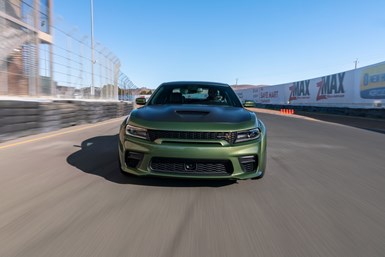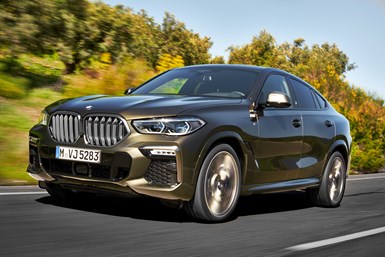J.D. Power APEAL: What Do Customers Like?
If the Initial Quality Study (IQS) is about issues customers have after three months of ownership, the Automotive Performance, Execution and Layout (APEAL) study is about what they like. Really like
#marketing
First, let’s give Dodge its due: It came in first in the 2020 J.D. Power Initial Quality Study (IQS) in the mass-market category and it came in first in the 2020 J.D. Power U.S. Automotive Performance, Execution and Layout (APEAL) study.

2020 Dodge Charger Scat Pack Widebody. (Image: FCA)
Here’s a fun fact: According to Dave Sargent, vice president of automotive quality at J.D. Power, 87,282 respondents to the APEAL survey are the same ones that answered the IQS survey. What’s more, the surveys are consecutive: first they fill out IQS, then move on to APEAL.
The brand that took the premium honors in APEAL? Porsche.
It isn’t the case that a company taking the top of IQS will take APEAL. In IQS there is no separation of brands into mass and premium. Every brand for itself.*
In IQS Porsche had a reported 186 problems per 100 vehicles. The industry average was 166 problems per 100 vehicles. And Dodge had 136 problems per 100 vehicles.
But there are two things that are similar between Dodge and Porsche, which Sargent said helped both brands in the APEAL ratings (know that APEAL is more subjective and impressionistic than IQS, as in “I like the way this vehicle makes me feel” vs. “I can’t figure out how to turn off the HVAC system!”, which is more of a factual circumstance).
Sargent said that Dodge and Porsche both are niche players versus, say, Chevrolet and Mercedes, both which have broad lineups.
A lesson: If you serve a specific segment well, you can be rewarded by your customers.
Sargent said that many companies realize that they are unlikely to achieve the top-ranking on APEAL because of their breadth of offerings. For those companies, “The goal is to sell lots of vehicles profitably.”
(So why would they be interested in the APEAL results if they are not likely to win? Because, Sargent said, J.D. Power provides rather granular information to the OEMs about specific products in their segments so the OEMs can see what the customers rank highly or not.)

2020 X6 Sports Activity Coupe: top overall APEAL model. (Image: BMW)
Another thing that he said makes a difference is the newness of the lineup: Newer vehicles perform better than those that have been in the market for a while because the new vehicles have things like Apple CarPlay, for example (which is popular with consumers according to the study), which older vehicles probably don’t.
What Would This Be Without A Tesla Observation? Tesla isn’t officially included in the APEAL results for the same reason it wasn’t officially included in the IQS results: Because in 15 states J.D. Power would require Tesla’s official permission to survey customers. (We don’t understand it, either.)
Based on data from owners in 35 states and some extrapolation, Sargent said that Tesla would have scored 896—which would have put it comfortably in first place as Porsche was at 881. However, the projected IQS score for Tesla would have been 250 (in this case a lower number is better as it is problems per 100 vehicles), which would have put it solidly in last place, as what did finish at the bottom in IQS, Land Rover, as at 228.
“Owners can look past the fact that they’re having a lot of problems with their vehicles,” Sargent said of Tesla. Remember: the IQS and APEAL surveys are filled out by the same people. “If they didn’t have those problems, they’d love them even more.”
Which should be concerning to the Tesla competitors—like Porsche, with the Taycan.
*It is worth pointing out, though, that eight models that were #1 in APEAL segments also achieved the #1 ranking in their respective IQS categories: Audi A3, BMW X6, Cadillac CT6, Genesis G70, Hyundai Veloster, Jaguar E-Pace, Nissan Armada and Nissan Maxima.
RELATED CONTENT
-
Choosing the Right Fasteners for Automotive
PennEngineering makes hundreds of different fasteners for the automotive industry with standard and custom products as well as automated assembly solutions. Discover how they’re used and how to select the right one. (Sponsored Content)
-
TRW Multi-Axis Acceleration Sensors Developed
Admittedly, this appears to be nothing more than a plastic molded part with an inserted bolt-shaped metal component.
-
GM Develops a New Electrical Platform
GM engineers create a better electrical architecture that can handle the ever-increasing needs of vehicle systems


.jpg;width=70;height=70;mode=crop)






